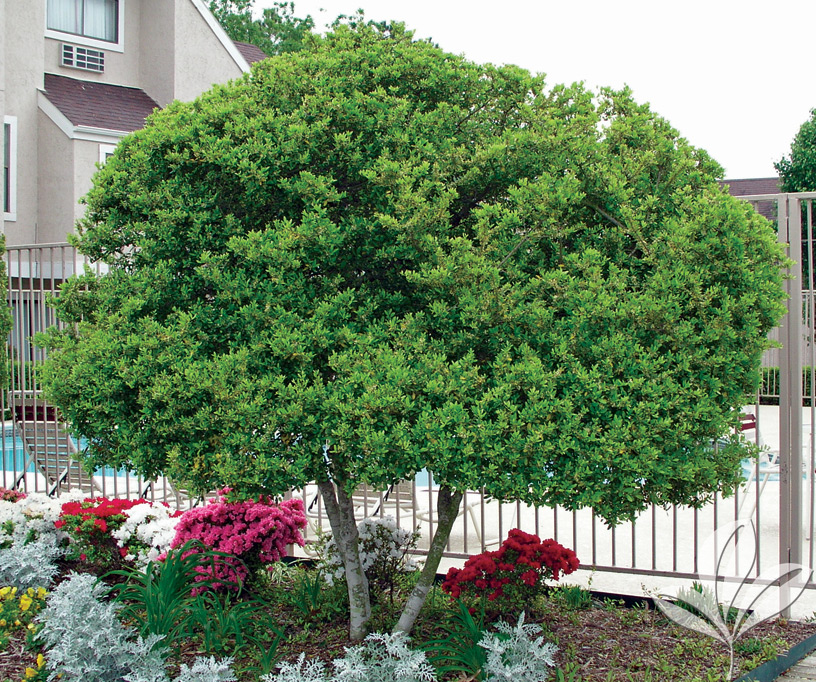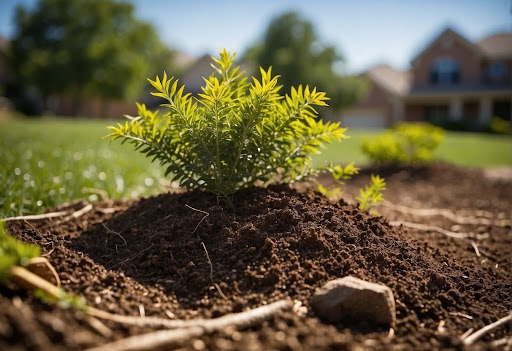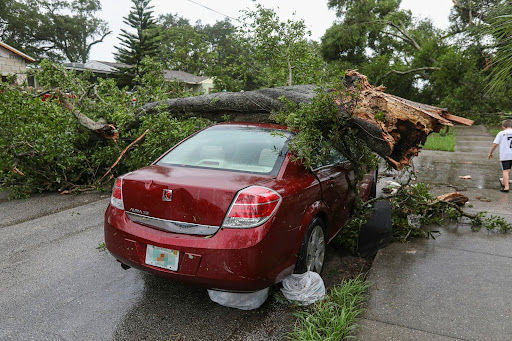
Date February 17, 2025
Category
Maintaining the health and safety of trees is essential for both homeowners and urban planners in Dallas. With its unique climate and urban landscape, Dallas presents specific challenges to tree health. Professional tree health assessments play a pivotal role in identifying early signs of diseases, pests, and structural issues, ensuring that trees remain a valuable asset to properties and the environment. Here, we’ll explore why tree health assessments are crucial and how they promote tree longevity and safety.
Why Tree Health Assessments Matter
1. Detecting Early Signs of Disease
Dallas’s climate—marked by hot summers and occasional severe weather—creates conditions that can stress trees, making them susceptible to diseases. Regular tree health assessments allow arborists to:
- Identify fungal infections like oak wilt or root rot in their early stages.
- Detect signs of bacterial diseases, such as fire blight, that could spread rapidly.
- Spot pest infestations, including emerald ash borers and aphids, before they cause extensive damage.
Early detection means early intervention, which can save trees and prevent costly removal or replacement.
2. Preventing Structural Hazards
Dallas is no stranger to storms, which can exacerbate structural vulnerabilities in trees. A tree health assessment includes a thorough examination of:
- Weak branches or limbs prone to breaking.
- Structural imbalances that may lead to toppling during high winds.
- Root system health to ensure stability.
By addressing these issues, property owners can mitigate the risk of damage to homes, vehicles, and power lines caused by falling trees or branches.
3. Enhancing Tree Longevity
Healthy trees provide countless benefits, from increasing property value to improving air quality. Routine assessments ensure that trees receive the care they need to thrive, such as:
- Proper fertilization to address nutrient deficiencies.
- Pruning to remove dead or diseased branches, promoting healthier growth.
- Soil treatments to improve water retention and root development.

Common Tree Health Challenges in Dallas
Pests and Diseases
Dallas’s urban forest faces threats from several invasive species and pathogens. Key examples include:
- Emerald Ash Borer (EAB): This invasive pest targets ash trees, often leading to significant decline or death if untreated.
- Oak Wilt: A fungal disease that can devastate oak trees, especially live oaks and red oaks.
- Hypoxylon Canker: A stress-related disease that affects weakened trees, often during droughts.
Environmental Stressors
- Drought Conditions: Dallas frequently experiences periods of drought, which can weaken trees and make them more susceptible to pests and diseases.
- Urban Heat Island Effect: The city’s concrete infrastructure increases temperatures, further stressing trees.
- Soil Compaction: Construction and heavy foot traffic can compact soil, reducing oxygen and water availability for roots.
Improper Maintenance
Improper pruning or overwatering can harm trees instead of helping them. Professional assessments guide tree care practices, ensuring that trees receive the right treatments at the right time.
The Benefits of Professional Tree Health Assessments
Professional arborists bring expertise and tools to the table that go beyond what homeowners can observe. Here’s how their assessments benefit trees and property owners:
1. Expert Diagnosis and Treatment Plans
Certified arborists use their expertise to:
- Conduct soil tests to identify nutrient deficiencies or pH imbalances.
- Diagnose diseases based on visible symptoms, bark conditions, and canopy health.
- Recommend targeted treatments like pest management, fertilization, or fungicide applications.
2. Customized Care for Dallas Trees
Every tree is different, and the conditions in Dallas demand tailored solutions. Arborists provide:
- Species-specific care for trees like live oaks, pecans, and crepe myrtles common in Dallas landscapes.
- Seasonal advice to protect trees during extreme weather, such as mulching in summer or wind protection in storm-prone months.
3. Long-Term Cost Savings
Preventative care through assessments is far more cost-effective than reacting to emergencies. By catching issues early, property owners can:
- Avoid costly removals of large trees.
- Minimize property damage caused by falling limbs or trees.
- Extend the life of trees, maximizing their environmental and aesthetic benefits.
Steps in a Tree Health Assessment
Professional tree health assessments follow a systematic process to evaluate and address tree health comprehensively:
1.Visual Inspection
- Examining leaves, bark, branches, and roots for signs of stress or disease.
- Checking for physical damage or pest activity.
2. Soil Analysis
- Testing soil for moisture, compaction, and nutrient levels.
- Identifying any deficiencies or contaminants affecting root health.
3.Tree Structure Evaluation
- Assessing the trunk and branches for cracks, decay, or weak points.
- Evaluating the root collar for signs of girdling roots or fungal growth.
4.Diagnosis and Recommendations
- Identifying the underlying causes of any observed issues.
- Providing a detailed plan for treatment, pruning, or ongoing maintenance.
The Role of Homeowners in Tree Health
While professional assessments are vital, homeowners also play a crucial role in maintaining tree health in Dallas. Here are some proactive steps they can take:
- Schedule Regular Assessments: Aim for at least one professional assessment annually, especially for mature or high-value trees.
- Water Wisely: During drought conditions, deep watering can help sustain tree health.
Avoid Soil Compaction: Limit heavy machinery or foot traffic near tree roots to prevent compaction. - Monitor Trees for Changes: Keep an eye out for discolored leaves, peeling bark, or unusual growths, and report these to an arborist.
Environmental Benefits of Healthy Trees in Dallas
Healthy trees contribute significantly to the environment and quality of life in Dallas. Key benefits include:
- Improved Air Quality: Trees absorb pollutants and produce oxygen, enhancing urban air quality.
- Temperature Regulation: Tree canopies provide shade, reducing temperatures in residential areas and lowering energy costs.
- Stormwater Management: Tree roots help prevent soil erosion and manage water runoff during heavy rains.
Trust TreeNewal for Expert Tree Health Assessments
TreeNewal’s professional tree health assessments are an essential service for maintaining the vitality, safety, and beauty of your trees in Dallas. Their team of ISA-certified arborists specializes in identifying issues early, helping to prevent potential hazards, reduce long-term maintenance costs, and ensure that your trees continue to thrive for years to come.
Whether you’re a homeowner or a business owner, partnering with TreeNewal is a smart investment in protecting your trees, enhancing property value, and contributing to a healthier environment. Schedule your expert tree health assessment with TreeNewal today and enjoy the peace of mind that comes with knowing your trees are in trusted hands.








